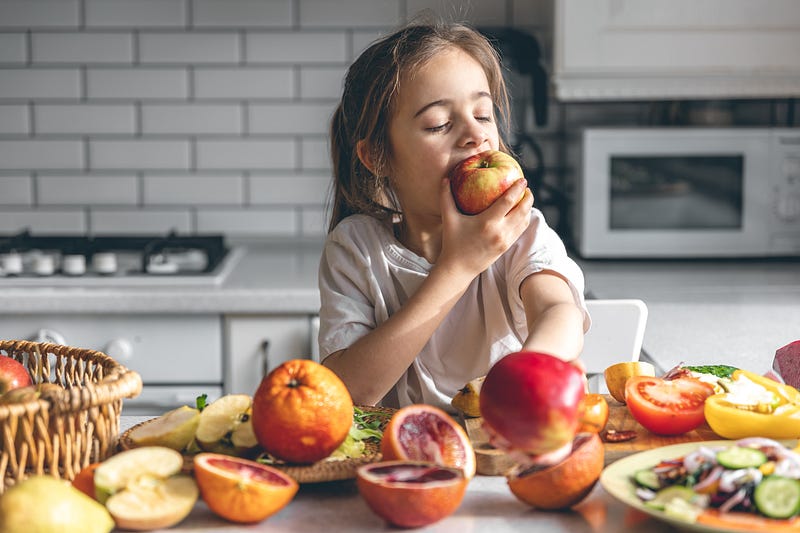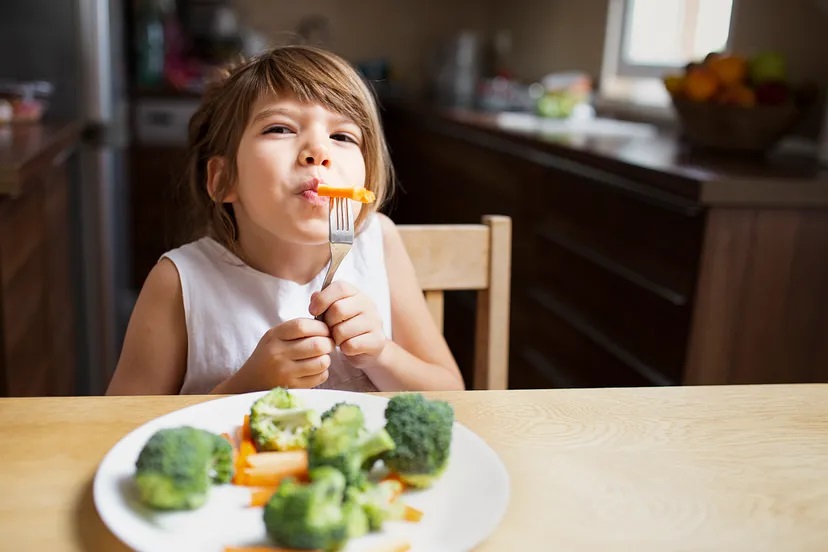Instilling healthy eating habits in children lays the groundwork for a vibrant and fulfilling life ahead. Yet, navigating the balance between guiding children toward nutritious choices and respecting their preferences can be a delicate task. How do we empower children to embrace healthy foods while acknowledging their tastes and peer influences?
Here are some practical tips to foster a positive relationship with food:
 Image by Drazen Zigic on Freepik
Image by Drazen Zigic on Freepik
Engage in Meal Preparation: Turn mealtime into a collaborative experience by involving children in meal preparation. Encourage them to select and cook nutritious ingredients, sparking their curiosity and enthusiasm for trying new foods. This hands-on approach not only cultivates essential culinary skills but also fosters a sense of ownership over their dietary choices.
Educate Through Conversation: Initiate conversations about the benefits of healthy eating, tailoring explanations to resonate with children’s interests and comprehension levels. When children understand the positive impact of nutritious foods on their bodies, they are more likely to make informed choices independently as they grow.
Limit Processed Foods: Minimize the consumption of processed and fast foods within the household, opting instead for wholesome homemade meals. While occasional indulgences are permissible, emphasize the importance of moderation and prioritize whole, nutrient-rich foods as the cornerstone of a balanced diet.
Infuse Fun into Healthy Eating: Make healthy eating enjoyable by presenting nutritious options in creative and appealing ways. Incorporate a rainbow of fruits, vegetables, and nuts into meals, transforming ordinary dishes into vibrant culinary adventures. By infusing variety and excitement into mealtime, children are more inclined to embrace wholesome choices willingly.
Avoid Food Battles: Foster a positive relationship with food by refraining from coercion or pressure tactics at the dinner table. Encourage exploration and experimentation with new foods, respecting children’s autonomy and preferences. While gentle encouragement is beneficial, imposing strict dietary rules may inadvertently lead to resistance and aversion towards certain foods.
In addition to these practical strategies, introducing children to specific beneficial foods can further enhance their nutritional literacy and dietary habits:
Linden Tea: A soothing beverage like linden tea can offer relaxation and tranquility, particularly beneficial for children navigating anxiety or sleep disturbances. Incorporate linden tea into bedtime routines, fostering moments of calm and reflection together.
Protein Power: Educate children on the importance of protein for growth and vitality, highlighting diverse sources such as lean meats, fish, eggs, legumes, and nuts. By emphasizing the role of protein in sustaining energy levels and supporting overall health, children can make informed choices to fuel their bodies effectively.
 Image by pvproductions on Freepik
Image by pvproductions on Freepik
Colorful Fruits and Vegetables: Encourage the consumption of a vibrant array of fruits and vegetables, each offering unique vitamins and minerals essential for well-being. From crisp apples to nutrient-rich spinach, encourage children to explore the diverse palette of nature’s bounty, cultivating a love for wholesome produce.
Embrace Healthy Fats: Introduce children to the concept of healthy fats found in avocados, nuts, seeds, and olive oil, promoting cardiovascular and cognitive health. Emphasize moderation and balance in incorporating these nourishing fats into daily meals, fostering a holistic approach to nutrition.
By approaching nutrition with a blend of education, encouragement, and enjoyment, we can empower children to make informed and wholesome food choices that lay the foundation for a lifetime of health and happiness. Let’s embark on this journey of culinary discovery together, guiding our children toward a future brimming with vitality and well-being.









